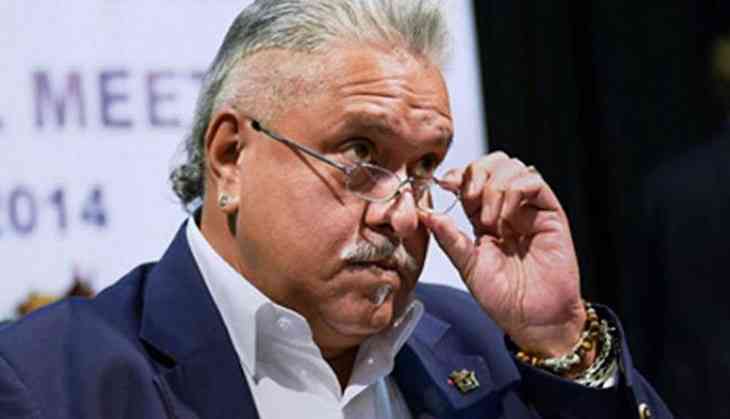End of good times: Vijay Mallya arrested in London. But extradition will take time

The law has caught up with liquor baron Vijay Mallya. The King of Good Times as he liked to call himself, has been arrested by the Extradition Unit of the Metropolitan Police in London on behalf of Indian authorities. However, bringing him back to India won't be easy as a cumbersome extradition process lies ahead.
“Vijay Mallya, 61 (18/12/1955), was arrested on behalf of the Indian authorities in relation to accusations of fraud,” they said in a statement. “He was arrested after attending a central London police station, and will appear at Westminster Magistrates' Court later today, 18 April,” the statement said. He was granted bail after the hearing.
MEA spokesperson Gopal Baglay confirmed that Mallya's arrest in London today was in connection with the request by the government to UK authorities. “The legal process in this regard is underway in the UK. The two governments are in touch,” he said.
He is wanted by the Central Bureau of Investigation (CBI) and the Enforcement Directorate in the multi-thousand crore loan default case. While the local courts have issued a non-bailable warrant, both the agencies want him extradited and made to face the law in India. That he has been arrested is a big first step, but UK extradition proceedings can be tiring and cumbersome, and end unsuccessfully as has been seen in several cases in the past.
However, as media started speculating that he may be brought back soon, Mallya was quick with his response. “Usual Indian media hype. Extradition hearing started today as expected,” he posted on Twitter.
The extradition procedure and earlier precedents
India had pushed for Mallya's extradition with a formal extradition request through a note verbale on 8 February. India had told the UK that it has a legitimate case against him and how if the UK were to act on the request it would show their "sensitivity towards our concerns".
India's request was certified by the UK authorities in March. “The UK Home Office has conveyed that the request has been certified by the secretary of state and sent to Westminster Magistrates’ Court for a district judge to consider issuing an arrest warrant,” MEA spokesperson Gopal Baglay had told the media then.
The arrest warrant is just one of the many steps in the lengthy procedure of extradition from UK. It involves hearing in the court, where the accused can cite reasons to convince the judge why he or she should not be extradited.
Like a diplomat had explained to this reporter earlier how the UK courts take a hard look in the extradition hearings. Even when the extradition is upheld by the lower courts, and sanctioned by the Secretary of State, the accused could approach the higher courts against the order.
Even when extradition requests get the nod of the authorities, they can get turned down by courts. Take the case of Naval Room War Leak kingpin Ravi Sankaran, whose passport was revoked in 2006, a red corner notice was issued in 2007 and the then Home Secretary Theresa May signed the extradition order finally in 2013. But the order was overturned by the a High Court in the UK in 2013 over an appeal.
Paedophile Raymond Varley accused of sexually assaulting several children in Goa between 1989 and 1991, too, could not be brought back to face the law for the extradition order was blocked by the court.
Tiger Hanif, wanted in the 1993 Gujarat bomb blast case is yet to be extradited after India sought his extradition in 2010. His appeal against extradition is pending with the UK Home Office for the last several years.
"Till date, a total of extradition requests made by the government in respect of fugitive criminals namely Rajesh Kapoor, Tiger Hanif, Atul Singh, Raj Kumar Patel, Jatinder Kumar Angurala, Asha Rani Angurala, Sanjeev Kumar Chawla, Shaik Sadiq, Ashok Malik and Mallya are pending with the UK government," Minister of State in the MEA, VK Singh had reportedly told the Rajya Sabha in March.
However, in October 2016, Samir Patel, an accused in the 2002 Gujarat riots case, who had jumped bail and fled to the UK, was extradited. His extradition was possible because he did not challenge the extradition order. "Others use the alibis like their life is in danger against extradition requests but Patel did not challenge the extradition," an official had explained to Catch then.
Cases against Mallya
Mallya, who fled to London in March 2016, is wanted for defaulting on loans to the tune of a whopping Rs 9,000 crore for the Kingfisher Airlines. The CBI had in January filed a 1,000 pages chargesheet in the case it registered over Rs 950 crore that Kingfisher Airlines owed to IDBI Bank. Mallya and 10 others including prominent former officials of the airlines and the bank featured in the chargesheet.
The Enforcement Directorate, too, is investigating him under the stringent Prevention of Money Laundering Act and has reportedly attached properties worth more than Rs 9,000 crore after the liquor baron was declared a proclaimed offender by the special court. The agency is probing him for defaulting on loans to the tune of Rs 6,027 crore which were taken from the consortium of banks. The agency believes that disbursal of loans despite poor credit ratings, negative net worth, non-compliance of credit policy et al, was a criminal conspiracy involving Mallya and other officials who were involved in the process. Out of the loan amount at least Rs 423 crore was remitted out of the country.
First published: 18 April 2017, 22:13 IST
